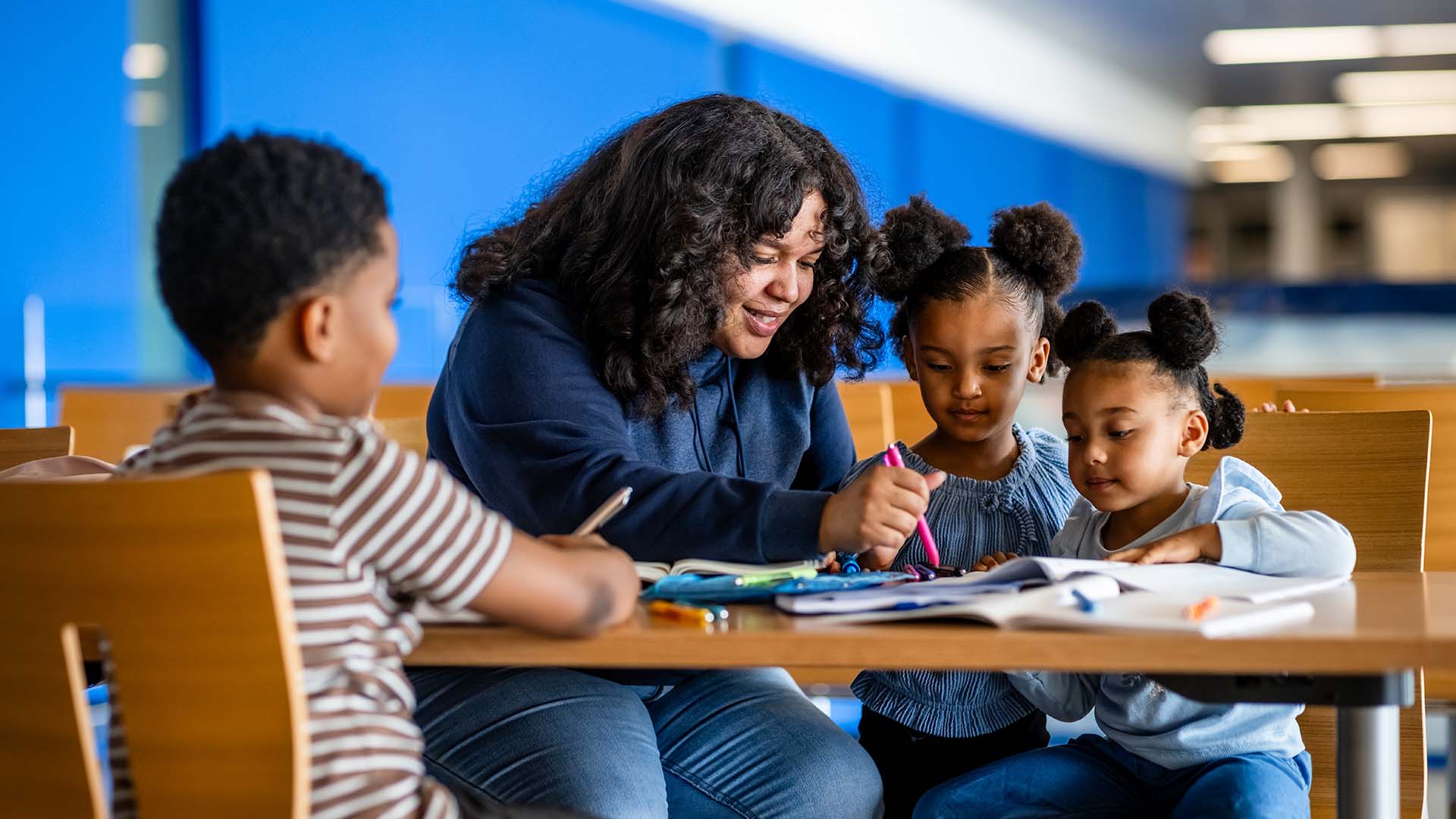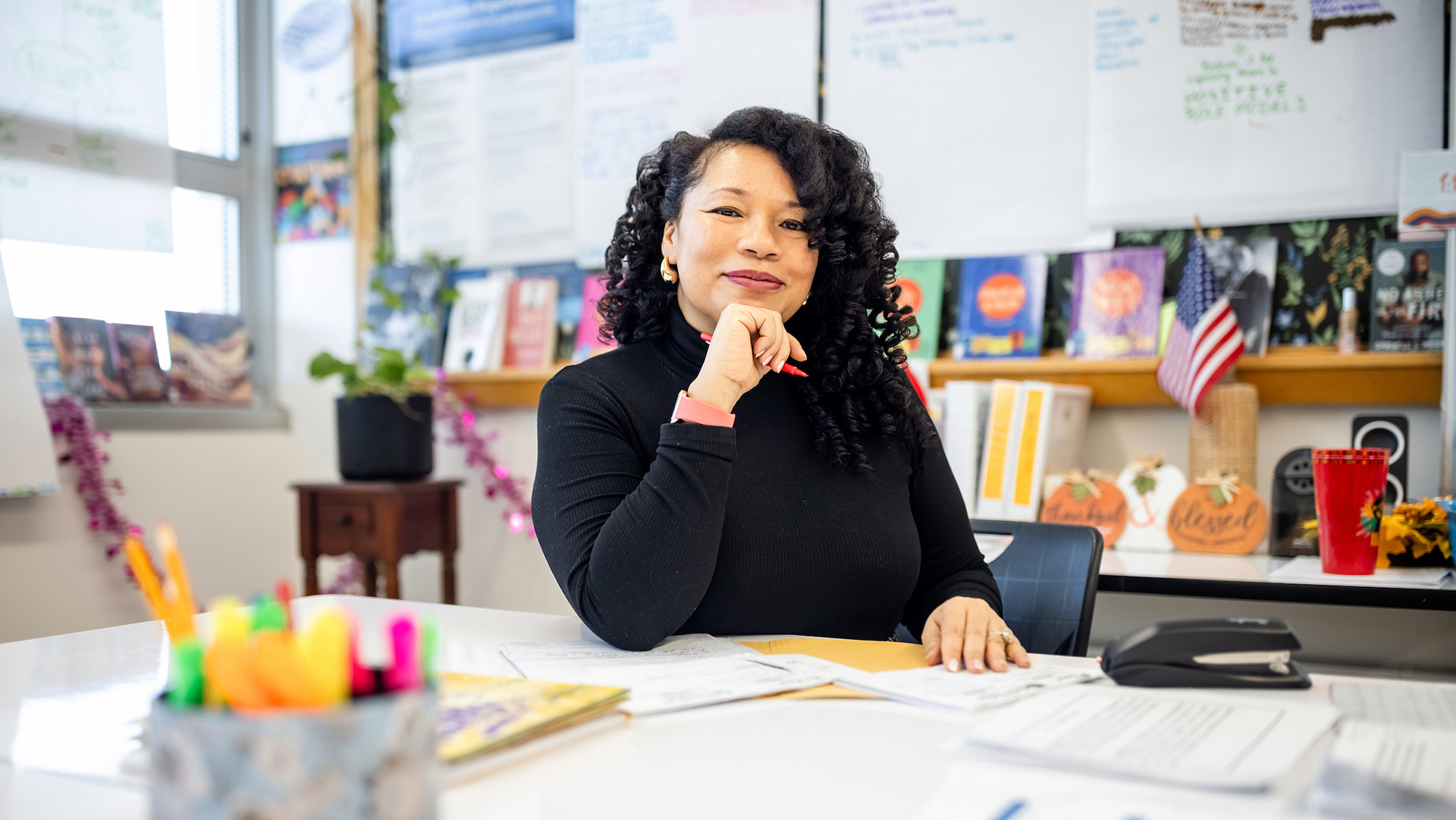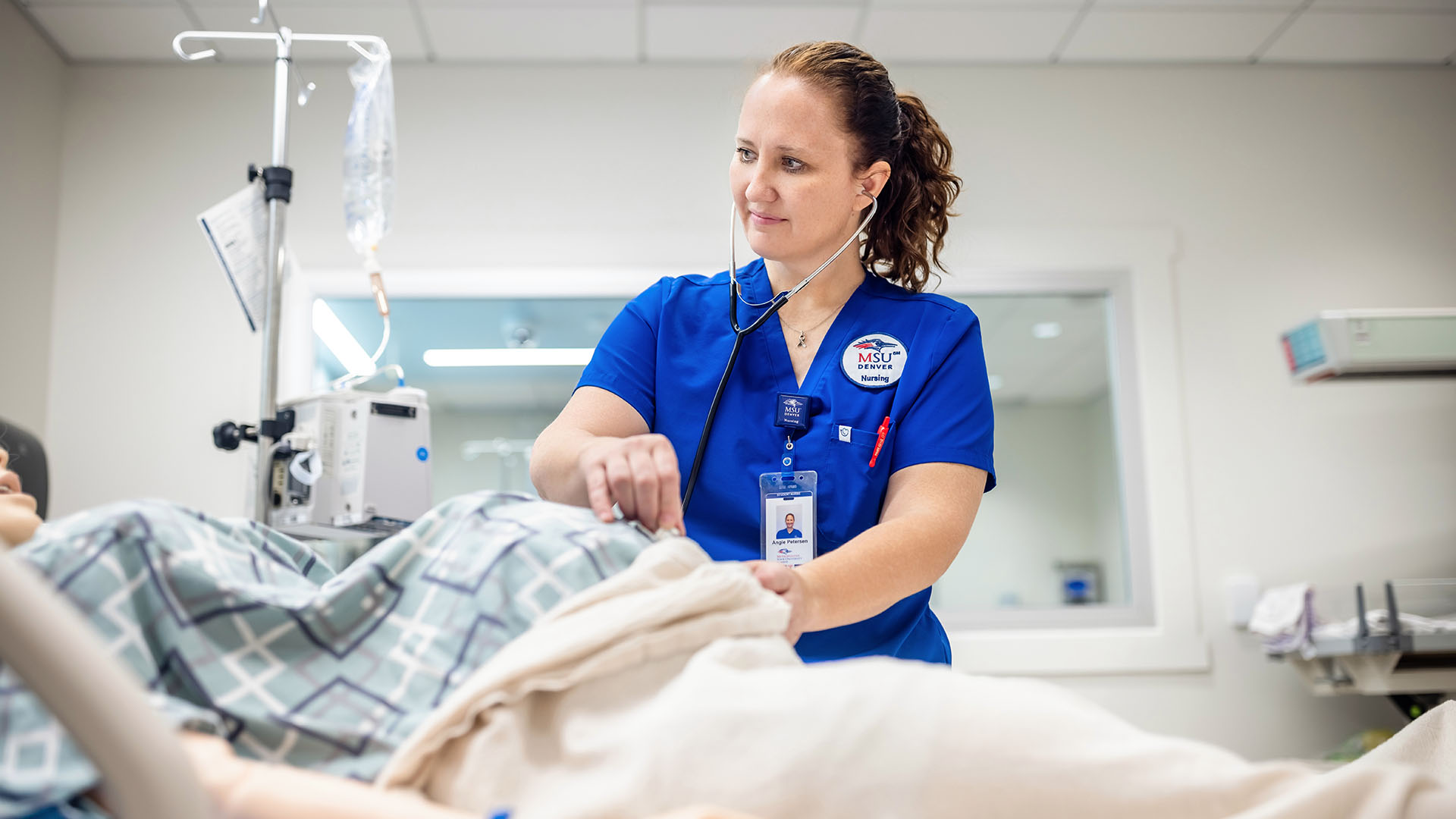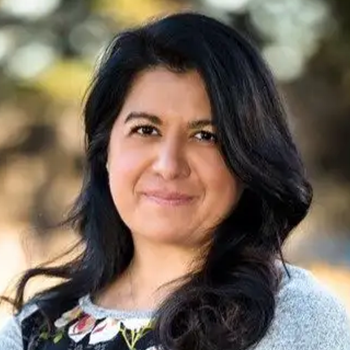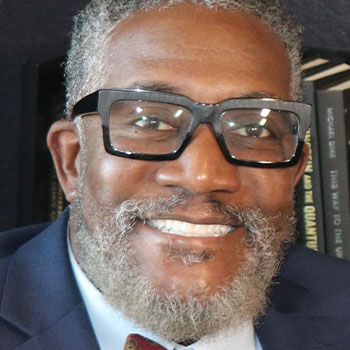Air Force vet ready for trauma in schools
Stephanie Shufelt worked on F-16s before she discovered her love for teaching. To be the educator her students need her to be, she earned a certificate in trauma-informed practices offered by MSU Denver's Office of Education Solutions.
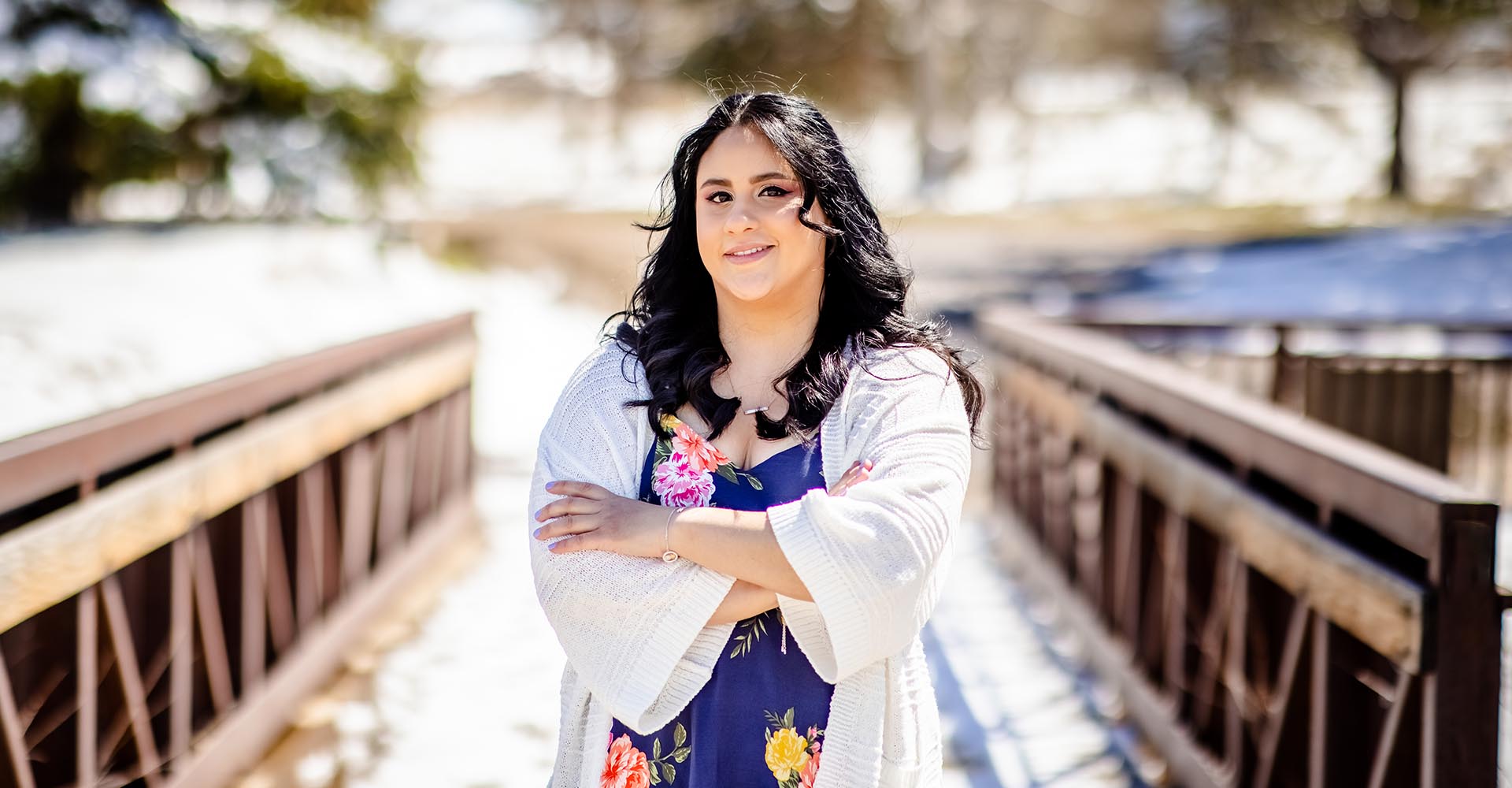
None of Stephanie Shufelt’s Air Force training prepared her for her toughest assignment in South Korea: working as a substitute teacher for the Department of Defense school system at Osan Air Base.
After leaving active duty and her job as an F-16 tactical-aircraft maintainer, Shufelt took up teaching the children of military parents at Osan Elementary School, where she discovered a love for teaching – and the difficulty of working with children who have experienced trauma.
She remembers a friendly young student telling her that his mother was getting married for the third time, and when she responded positively, he said, “My dad put my mom through a table, and we left in the middle of the night. I haven’t seen my dad since.”
Shufelt says she felt shocked and didn’t know how to handle the situation.
“I remember wanting to cry for him, but he seemed unaffected – it was just matter-of-fact for him. I just remember that I was terrible in dealing with that,” she said.
Since returning stateside and enrolling at Metropolitan State University of Denver to pursue a degree in elementary education, Shufelt has earned a certificate in Trauma-informed Practices, which the School of Education has offered with nonprofit partner Resilient Futures since 2018. Research shows between 50% and 70% of school-age children experience trauma.

“It’s kind of invisible. You don’t really know who is affected by it,” she said. “It’s important as a teacher to know that it’s not the students’ fault and to try to help them from wherever they are and help them feel safe. And implementing these practices is helpful because it helps all students, not just the ones with trauma.”
More than 700 people have completed MSU Denver’s four-workshop certificate in Trauma-informed Practices, including close to 300 students, said School of Education Dean Elizabeth Hinde, Ph.D. The certificate is available to School of Education faculty, staff, alumni and students, as well as their mentor teachers in local schools.
“Many of our students that are currently teaching have the skills and knowledge that Trauma-informed Practices provided them, and we have many, many more in the pipeline who will be equipped to recognize and address trauma among schoolchildren, which we know is even more essential than ever as we come out of the pandemic,” Hinde said.
Trauma-informed Practices is one of many initiatives that falls under the School of Education’s Office of Education Solutions, an outreach effort that aims to directly take on important issues facing pre-K-12 schools and students.
The Office of Education Solutions includes efforts such as a Family Literacy Program, which provides books and reading support to low-income families; the Roadrunner Diversity Scholars Program, focused on resolving the lack of diversity in the teaching profession; and technology integration into classrooms to help teachers implement best practices in remote learning.
Hinde outlined these initiatives and others at an MSU Denver Executive Update in April, explaining that the issues the School of Education is trying to alleviate are more urgent than ever.
“We are at an inflection point in the history of education in this country,” she said. “We can do nothing and hope for the world to progress – allow technology to evolve with or without buy-in from schools, allow educators to work for salaries that don’t match their efforts or education, allow for unequal access to quality teaching and schools for underrepresented children – or we can decide to do something.”


